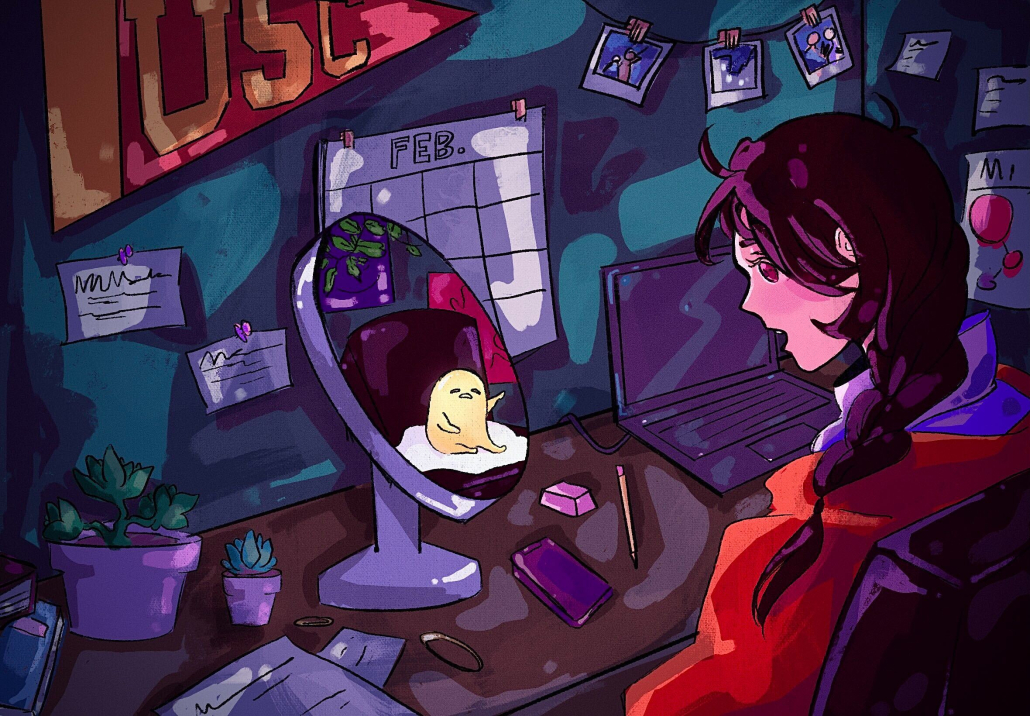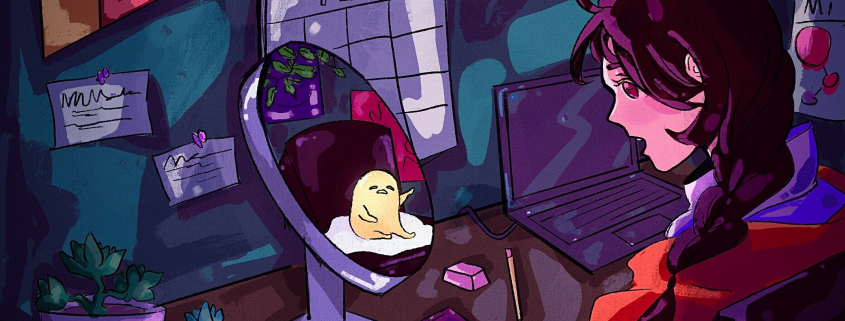Lazy egg ‘Gudetama’ is my coping mechanism

I watched Netflix’s “Gudetama: An Eggcellent Adventure” when it was first released on Dec. 13. The show, an animated television series about a lazy egg who is roped into a chick’s quest to find its mother, spoke to me. In the teaser trailer, Gudetama, the titular lazy egg, is born proclaiming life to be “a drag.” In another trailer, Gudetama apathetically declares that it is just “living life by going with the flow.”
“That’s literally me,” I told my mom, my housemate and anyone else who would listen about my striking resemblance to Gudetama.
Gudetama actually is me. The yellow Sanrio blob from Japan has been credited with becoming a “cultural phenomenon” by publications like Vox. Its ability to make laziness its entire personality resonates with viewers. That’s what Gudetama is known for: being lazy. It doesn’t seem to have any goal in life other than rejecting hard work that is perceived as pointless.
Throughout the television series, Gudetama is dragged about to various locations by its friend, Shakipiyo. The egg doesn’t serve as an active presence in the adventure and, if non-participation was an award, it would win the grand prize.
Besides my physical appearance (there have been a few times where I lie in bed typing sentences of these columns on my phone, assuming the literal pose of Gudetama) I’ve started to notice that I’m turning to the philosophy of Gudetama more and more. Why? It’s hard being a college student sometimes.
Of course, I’m grateful for the chance to be at USC and get my education. As someone who was rejected from USC my senior year of high school, I constantly marvel at how I coped with that gut-wrenching feeling. I used hard work to prove myself and successfully transferred to USC. At that time, my solution to my sadness was to work. Now, it’d probably be to merely lie on the bed and cry.
A time comes when you don’t want to try so hard anymore, especially when you feel like you’re not getting much in return. In my senior year of high school, trying hard meant carefully crafting each word in each essay of every college application.
When I didn’t get into my top choices and experienced the disdain that came after from my peers, it felt like I was always putting 100% effort into everything and not getting 100% back from the world. Classmates would tell me that I was acting entitled by expecting college decisions to go my way, considering my subpar grades. As I was drowning in my negativity, I couldn’t help but feel like that was the point of my hard work. If trying hard doesn’t get you to the point you want, then why try hard in the first place?
Trying hard doesn’t end after getting into college. Now, it’s rewriting cover letters for internship and full-time job applications, sending out hundreds to not hear back. It’s being in interviews and trying not to come across as a try-hard, forcing yourself to seem effortless even when you care so deeply about the job. When your attempts to present yourself as the perfect candidate don’t work, you reflect back on your interview. You realize that, in your excitement for the job, your nervous energy probably made the panel mistake you as being “weird.”
Just after you get a rejection from your dream internship, you receive an essay back in class with row upon row of comments in red. Even when you know this is part of life, all these rejections, you can’t help but think: Why am I not good enough?
Gudetama, with all its nihilistic proclamations of not caring and simply eating and sleeping, has become my go-to solution in moments like these. After all, sending applications out into the void and seeking validation isn’t sustainable when validation is so hard to come by. Rather than worrying about curating every aspect of myself for peers, employers and family, I’d rather just “go with the flow” as Gudetama does.
So I find myself just lying in bed, pondering the prospect of unemployment after graduation. It’s exhausting caring so much that you just don’t want to care at all.
A serial LinkedIn connector might disagree with me. Working hard and networking will always help in the long run, no matter how long it takes, someone might say. You do you — I’m tired. I don’t feel like trying to artificially strike up conversations with people when I know that I can’t do anything for them. I don’t want to care as much about whether or not people see me as a product that can help them.
Maybe the grind never stops. Just for now, I’m going to take a break from that grind. A break from comparing myself to others who have gotten their dream jobs and their dream futures. A break from trying hard to the point where what I want comes before myself. It’s better for my mental health that way: a form of self-care, like Gudetama is for so many others. Let me be Gudetama, just for a bit.
I’m going to stop writing now. It’s time for me to take a nap.
Valerie Wu is a senior writing about animation and digital arts from a contemporary perspective. Her column “Animated” runs every other Thursday.

